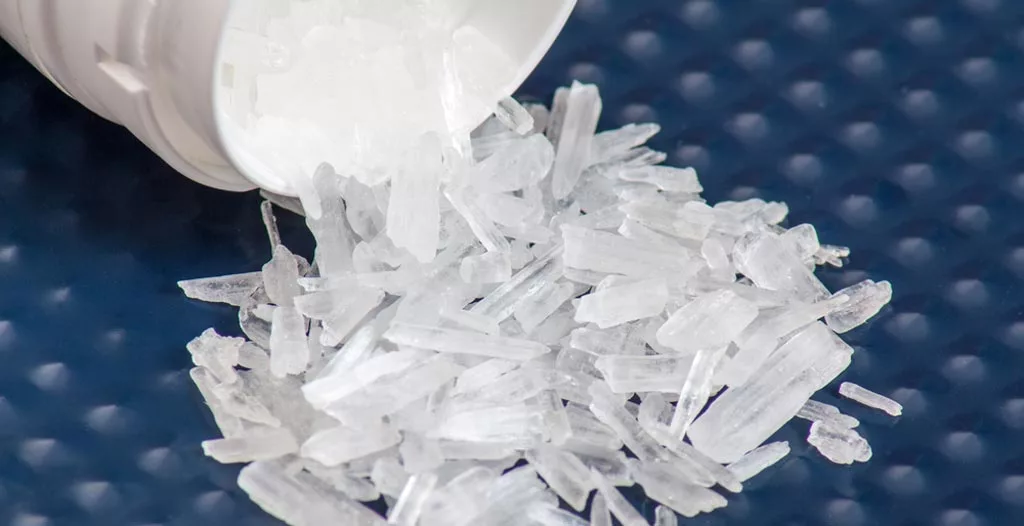How Meth Addiction Treatment Can Change Your Life
Methamphetamine addiction might feel like a prison. Former meth users often explain that feeling. It feels like a trap during moments of sobriety. But getting high sounds like a great idea the next minute. They look into the mirror and see the damage.
But they can’t turn away from drug abuse. Does this struggle sound like you or someone you love? Once you find the strength to admit it, you are ready for recovery and treatment.
Keep reading to find out the most effective forms of meth addiction treatment and learn about how South Shores Detox and Recovery can support your recovery today!
Finding the Most Effective Programs for Meth Addicts
You have years of lost friendships. Broken trust. Family members who turned away. South Shores knows how to help you heal. You can become that person you always wanted to be.
With the help of an effective drug addiction treatment center, you will receive the toolkit you need to recover. You’ll also learn how to use every tool in the bag to rebuild your life.
You are taking the first step right to recovery today. This list of frequently asked questions will explain your meth addiction. It will also encourage you, as we can help you fix the meth abuse. Every treatment program for addiction is complicated, but you can recover with the programs that work.
What Is Methamphetamine?
- Methamphetamine is a stimulant drug that affects the central nervous system. It is a popular recreational drug for its energizing effects.
- Meth often comes from illegal labs using toxic and hazardous chemicals. These lead to explosions, fires, and toxins. Users take it in several ways: snorted, smoked, injected, or orally.
- Methamphetamine is a Schedule II drug under the Controlled Substances Act due to its high potential for recreational use and addiction.
What Is Crystal Meth?
Crystal meth, aka ice or glass, is a potent methamphetamine in clear, crystal-like chunks or shards. When you’re on crystal meth, you may experience a rush of intense pleasure, increased energy, and enhanced alertness.
The effects can last for several hours. But they eventually wear off. That leads to a crash marked by extreme fatigue, depression, and anxiety.
Why Is Meth So Addictive?
Methamphetamine is addictive because it can increase dopamine levels in the brain. That’s a neurotransmitter that regulates pleasure and reward. Meth use floods the brain with dopamine, causing intense feelings of pleasure.
But the brain adapts to the drug, leading to tolerance. That’s when the brain demands higher doses to achieve the same effect. Continued meth use can also cause changes in the brain’s structure. The result is addiction and dependence, underlying the need for recovery and treatment.
Why is Meth Addiction So Widespread in the United States?
Meth addiction is widespread in the United States. The drug has existed for decades. Recently, meth production and distribution have become more sophisticated. That led to more potency, availability, and meth users.
The National Institute on Drug Abuse (NIDA) warns that meth addiction is rising. The state that 2021 brought 53,495 overdose deaths from psychostimulants, including meth. That rose from 2020, which had 40,643 deaths.
What Are the Long-Term Effects and Signs Meth Abuse on Your Body?
Chronic meth use can cause physical and mental health problems. Below are some physical signs of abusing meth:
- Cardiovascular issues: It can increase the risk of heart rate, blood pressure, heart attack, and stroke.
- Tooth decay: It can cause dental problems. These include decay, gum disease, and tooth loss.
- Brain: Meth use can cause structural brain changes. That leads to cognitive deficits, memory problems, and mood swings.
- Attention Deficit Hyperactivity Disorder: Meth use leads to ADHD symptoms. These include hyperactivity, impulsivity, and inattention.
- Decreased appetite and weight loss: It can cause a loss of appetite. That can result in weight loss and malnutrition.
- Tolerance: Continued meth use can lead to tolerance, demanding higher doses of methamphetamine to get high.
What Are the Signs of a Methamphetamine Overdose?
Methamphetamine overdose is a life-threatening medical emergency that requires immediate attention. The signs of a methamphetamine overdose include:
- Rapid or irregular heartbeat
- Elevated body temperature
- High blood pressure
- Seizures
- Agitation or confusion
- Chest pain
- Difficulty breathing
- Loss of consciousness
If you suspect a methamphetamine overdose, get help immediately. If you need help, here’s what to do:
- Call 911: Call 911 or your local emergency services immediately. Provide the operator with as much information as possible. Stay calm.
- Stay with the person: Stay with the person and track their condition. Try to keep them calm; reassure them that help is coming.
- Provide basic first aid: If the person is conscious and breathing, you can give basic first aid.
- Do not give anything to eat or drink: Do not give the person food or drink.
- Provide information to medical professionals. When EMS arrives, give them as much information as possible. Be honest. They must know all substances they may have taken. They might perform field drug testing if needed.
Overdoses are life-threatening. Taking quick action can help save someone’s life. After they are safe, please encourage them to seek treatment for their addiction.
What Are the Social, Emotional, and Behavioral Signs of Methamphetamine Abuse?
Methamphetamine use can have significant social, emotional, and behavioral effects on individuals. Long-term meth abuse can also break families and friendships. Some of the signs someone may need rehab or treatment for meth addiction include::
Social: Meth use can cause individuals to isolate themselves from their friends and family. That causes strained relationships and social isolation.
Family dynamics: Meth addiction can lead to conflict, neglect, and trauma. It causes significant emotional damage to the individual and their loved ones.
Friendships: Meth use can lead to losing friendships or lacking trust.
Putting yourself at risk: Meth use can cause individuals to engage in risky behaviors. Some of these could lead to legal interactions. A few risks are these:
- Having unprotected sex
- Driving under the influence
- Criminal activities
- Visiting unsafe places to use or obtain illicit substances
Career or job: Meth addiction can lead to career setbacks. Think of job loss, financial instability, and a lack of career opportunities.
Child endangerment: Meth addiction can lead to neglect, abuse, and children’s custody loss.
Emotional and behavioral issues: Meth can cause many emotional and behavioral problems. Some behaviors you might see include these:
- Anxiety
- Depression
- Aggression
- Mood swings
- Paranoia
- Hallucinations
- Psychosis
Remember, you are not alone. That all sounds overwhelming. But you can get meth abuse treatment to stop using meth safely and effectively.
What Are the Root Causes of Methamphetamine Abuse?
Methamphetamine abuse can have several root causes. Below are the factors that lead to abusing meth:
- Trauma: Individuals who have experienced trauma may abuse drugs or alcohol. These include trauma, neglect, or violence. People who suffer from those may turn to drugs to cope.
- Mental health issues: Individuals with mental illnesses often use illicit substances. These illnesses include depression, anxiety, or PTSD. Meth or other substances offer self-medication instead of proper treatments.
- Genetics: Some individuals might have a genetic risk for addiction. Their family history makes them vulnerable to meth addiction.
- Peer pressure: Peer pressure and social influence contribute to drug abuse.
- Lack of support: Individuals lacking support or a stable environment may use substances. It’s how they deal with stress and difficult life circumstances.
What Meth Withdrawal Symptoms Can Someone Expect?
New clients often ask what to expect while withdrawing from methamphetamine use. Don’t let this fear hold you back from recovery.
Yes, meth withdrawal can be challenging and uncomfortable. But you should never attempt to quit meth, cocaine, alcohol, or any substance cold turkey. Don’t risk it. Meth withdrawal should always happen during a medically supervised detox. Rehab professionals can give medications and treatment to ease discomfort.
The National Institute on Drug Abuse published information on the safety of naltrexone when dispensed by rehab doctors. They deemed it “safe and effective.” Professional services and medications also minimize the risk of getting sick from the side effects.
What are the Stages of Meth Withdrawal?
During meth detox, the stages of meth withdrawal typically include:
- Crash phase. This is the first 24 hours after your last drug use. You might have fatigue, depression, and anxiety.
- Acute withdrawal: This lasts up to two weeks. You may experience cravings, irritability, and mood swings.
- Protracted withdrawal: This may last for several months. The severity of symptoms lessens.
During methamphetamine withdrawal, the body undergoes several changes. They might cause a range of physical and psychological symptoms, including these:
- Body aches and pains
- Nausea and vomiting
- Diarrhea
- Insomnia
- Fatigue
- Depression and anxiety
- Irritability and mood swings
- Cravings for meth
Medical detox is the first step of meth addiction treatment. But don’t the withdrawal symptoms scare you! South Shores Detox & Recovery will prescribe clients the necessary medications to ease meth withdrawal symptoms throughout treatment. We also provide 24/7 medical supervision for comfort and safety. We make our drug detox program as comfortable as possible.
What Can I Expect When I Choose Methamphetamine Addiction Treatment Over Drug Use?
Choosing to seek help for meth addiction is a courageous decision. The staff at South Shores understands that the process can feel overwhelming.
When you choose rehab with us, you can expect the following steps on your journey:
- Admissions and Intake Process: Our admissions team will guide you. We take time to answer questions. We’ll reassure you of our commitment to supporting you.
- Confidential Assessments: This happens during the intake. Staff gathers information about your addiction and physical and mental health. The assessment helps the medical staff prepare personalized rehab treatments. They customize mental health services for your needs.
- Meeting the Care Team: You will meet your therapist, medical professionals, and support staff. We use a collaborative approach to rehab treatments. Our team ensures you’ll receive the highest program possible.
- Starting Behavioral Therapy Programs: During detox, you will begin therapy programs. These programs will include evidence-based mental health services.
You’ll have the best care to help you reach your goals. You deserve it!
Does Treatment Address Substance Abuse Alongside Mental Health Disorders?
Yes! Drug rehab and addiction treatment centers like our offerings at South Shores treat substance abuse and other mental illnesses. Many turn to drugs to cope with life. They don’t realize they require other mental health services. In short, many people slip through the cracks, undiagnosed and without medications or counseling.
Co-occurring disorders (dual diagnosis) occur in individuals struggling with addiction. For instance, you have methamphetamine use disorder. But you might also have a hidden illness. The National Institute of Mental Health shares a few conditions co-occurring with meth addiction:
- Depression: This mood disorder causes sadness and hopelessness. It also creates a loss of interest in daily activities.
- Anxiety disorder: This mental health condition induces excessive worry and fear. It might interfere with daily life.
- Personality disorder: This disorder includes patterns of thoughts, feelings, and behaviors that deviate from cultural norms. It may cause impairment in social and occupational functioning.
- Bipolar disorder: This mental illness causes extreme mood swings. It also includes elevated or irritable moods (mania) and episodes of depression.
- Post-traumatic stress disorder: (PTSD) develops after a person experiences or witnesses traumatic events. It induces flashbacks, nightmares, and avoidance behaviors.
- Schizophrenia: This disorder is a mental health condition impacting how a person thinks, feels, and behaves. It often causes delusions, hallucinations, and disorganized thinking.
Other co-occurring disorders can include other drugs and addictions, like cocaine or alcohol. At South Shores, we support healing the whole person. But we don’t stop at mental health services alone.
Besides counseling, you will also heal physically from substance use during your time with us. You’ll enjoy restoring your fitness and feel better. You can enjoy yoga, walking, or other fitness routines. Your body will heal and strengthen. Even better, this good treatment of your body improves your self-esteem.
What Is the Best Meth Treatment Center in California?
South Shores are proud to adopt holistic approaches for treating methamphetamine addiction. After all, addiction is a complex issue that requires individualized care, counseling, and support. We custom-fit every treatment program to meet clients’ unique needs and preferences. We also offer a range of evidence-based therapies. These are the tools for that toolkit we mentioned earlier.
Therapy usually includes cognitive-behavioral therapy. That type of psychotherapy focuses on the connection between thoughts, emotions, and behaviors. CBT aims to help individuals identify and challenge negative thought patterns and beliefs that cause distress.
You might also benefit from dialectical behavioral therapy (DBT), a type of CBT. It is often helpful for dual-diagnosis clients. It focuses on helping manage stress, mindfulness, emotional regulation, and interpersonal skills. DBT aims to help people find a better balance between acceptance and change.
What Other Therapies and Methods Help With Stimulant Addiction?
You’ll often learn new skills during addiction treatment using the Matrix Model. This system helps you learn how to set recovery goals during your recovery. It employs positive reinforcement and teaches you how to continue your progress after leaving the supervision of the addiction treatment center.
Depending on the severity, you might need inpatient or outpatient treatment centers. Find treatment for your substance use disorders that gives flexibility. Regardless of which treatment options are best, the goal is the same. Get sober. Stay sober.
Our kind and supportive program helps clients achieve long-term recovery. Behavioral therapies are tools for life. Counseling helps you take the tools out of the kit and teaches you how to use them.
How Can Someone Who Struggles With Drug Abuse Avoid Relapse?
Healing an addiction doesn’t end when you leave the treatment facility. Relapse prevention is an essential part of the substance abuse recovery process. At South Shores, we offer several program tools to help clients avoid relapse after rehab:
- Individual therapy: Our therapists work with clients to identify triggers for substance use. We also help you develop coping skills to manage cravings and stress. This often includes cognitive behavioral therapy to name triggers and resolve them.
- Group therapy: Group therapy provides a supportive, confidential environment. There, clients can connect with others who understand the many challenges of a rehab program. You will share your recovery struggles and successes.
- Family therapy: These sessions heal relationships and restore a vital client support network. Family education during these sessions helps them understand how to provide emotional support.
- Support groups: We offer access to support groups, such as 12-step addiction programs. These give ongoing support and encouragement to clients. You’ll learn motivational incentives to encourage sobriety during ongoing recovery. It’s beneficial for permanent abstinence from substance use.
- Aftercare planning: We help clients continue personalized treatment after rehab. It includes skills to manage life after rehab. It can include ongoing therapy, contingency management, and support groups. You’ll receive many resources to maintain sobriety and prevent relapse.
How Can I Pay for My Recovery and Meth Addiction Treatment Program?
At South Shores, we understand that paying for addiction treatment can significantly concern many individuals and families. We have insurance specialists who speak with healthcare insurance companies or Medicare to ensure clients receive the needed rehab program.
We also offer self-pay options for individuals who do not have insurance coverage. We aim to make meth addiction treatment accessible to all who need it.
Are You Ready to Connect with South Shores and Start Treatment Today?
We understand that seeking meth treatment can be challenging. But treatment is the first step toward a brighter, healthier future. At South Shores Detox and Recovery, we provide compassionate, evidence-based treatment to help you overcome meth addiction and achieve long-term recovery.
Our kind and knowledgeable staff supports you every step of the way, and we offer a range of tools and options to help you achieve your goals. If you are ready to change and start a new life, we encourage you to connect with South Shores today.
We will give you the tools for building a new life. We’ll teach you how to use the tools. You will be ready to build yourself a brighter world without drug use. There is no better time, so let’s get started – make the confidential call and get options for a new life now!





